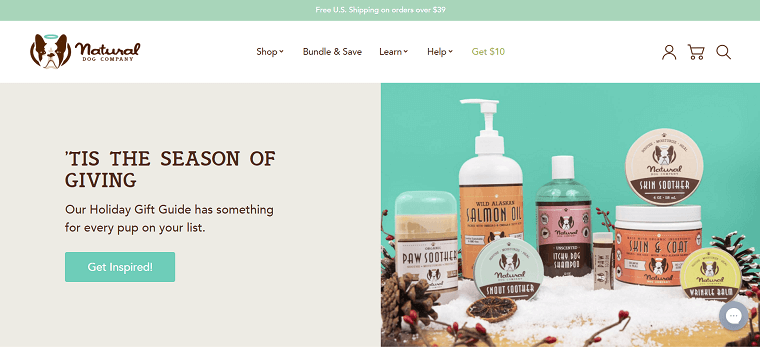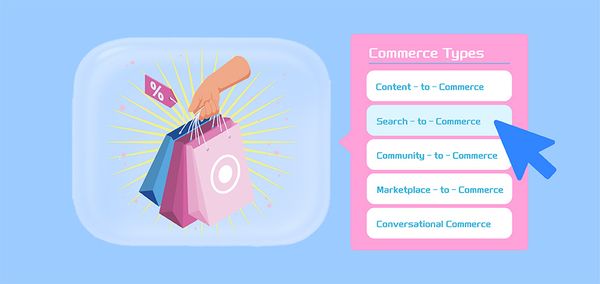Niche Marketing Strategy 2022: Best Tips and Examples

Knowing your customer is the first rule of starting a business. Customer understanding is crucial to any successful venture, since it influences every aspect of the company, from content to marketing to product development.
However, choosing a niche marketing strategy can be challenging. You may be tempted to start wide so that potential customers won't be excluded.
The result of that approach is what used to be known as "spray and pray" marketing, which refers to the dissemination of irrelevant messages to generic audiences so that something sticks. If you try to sell to everyone, you will not sell to anyone.
What Is Niche Marketing Strategy
A niche marketing strategy focuses on attracting a specific group of customers. Instead of targeting the broader market, it targets a small group of buyers. Niche strategies help you stand out from your competition, attract buyers, and boost profits.
Unlike running a traditional online store, dropshipping business owners not only research on the right niche but also need to consider whether the strategy works well or not in the dropshipping model. For further reading, please check this article: How to Start Dropshipping for Free?
| Get Started Now to Grow Your Online Business with the Best AliExpress Dropshipping Tool - DSers! |
What Constitutes a Niche
Based on the factors and preferences of different consumers, every market can be segmented. Examples of niche definition include:
- Gender, age, salary, and education level are included in the demographic base.
- Buyers' location determines the geographical niche market.
- Markets for psychographic niches are based on consumer interests, values, needs, and attitudes.
Finding a Niche Strategy
Finding a niche market to target is the first step in a successful niche marketing strategy. Four steps are involved:
· Establishing your uniqueness
You find your niche at some point when you combine what you excel at with what you provide that none of your competitors can match.
Your niche is when you and your team are experts in a field that few others know well or are passionate about. You can also target this niche more effectively than anything similar to your products or services.
· Finding out if there is interest
Some niches are already dominated by other companies once you identify them. Your niche marketing strategy will need to be narrowed further in this scenario.
To do this, conduct a competitor analysis and perform keyword research. Your niche marketing strategy can focus on a high-volume keyword that your competitors aren't targeting.
· Identifying the needs of your ideal customer
Find out not just how you serve your audience, but also what else they need to further narrow your niche. Determine how you can meet this need.
This "two birds with one stone" approach may well be unique to your company. Your business could be able to create a niche audience that regularly buys from you.
· Executing and reviewing your niche strategy
Even though the three preceding steps can guide you toward a meaningful niche, they do not guarantee success. Analyzing your results after implementing your niche marketing strategy will help you identify any gaps.
If you need to adjust your strategy to fill any gaps, keep checking your results, then repeat this cycle.
Best Niche Marketing Strategy Tips for 2022
1. Take Some Time to Reflect
You will not be successful if you don't care about what you're going to do. The only way to get through the ups and downs of being an entrepreneur is to be passionate about what you do.
The niche you choose should come naturally from your interests, values, and goals. A niche market is best developed based on your own experiences.
- What are my special skills?
- Even if I didn't get paid, what would I like to do?
- What am I passionate about that I lose all sense of time when I'm doing it?
- Have I encountered a pain point that would benefit me and others?
- What would I do if I knew I could not fail and had all the time and cash in the world?
It is important to identify what you are good at, and what you enjoy, in order to find the ideal niche.
2. Know Who Your Customers Are
If niche marketing had only one rule, it would be this: know your customers from the inside out. If you don't know what those common traits are, you won't be able to take advantage of a niche market.

In terms of the types of products they buy, your niche market is likely to have similar tastes, but it often goes deeper than that. The habits and beliefs of niche customers usually extend beyond buying behavior.
You don't need to analyze every shopper, but you should pay attention to their pain points - what troubles they have. If your customers have similar pain points, then this strategy may be especially effective for a niche brand. If you learn what their needs are, you can offer more precise products or variations to meet them.
3. Find out Where Your Customers Are
A niche marketing strategy based on email campaigns would not make sense if your ideal customer spends all of their time scrolling through Facebook. Do your research.
Knowing who your buyers already help you dig deeper and learn how they find products, where they shop, and what affects their buying decisions. Your marketing money will be more effective once you have that information.
4. Analyze Your Competition
It is always a good idea to investigate your competitors regardless of what niche market you are in. Does the niche market even exist? You can begin by typing keywords that your intended audience would use into Google.
How can you stand out from the crowd? What are you going to do differently? You may be able to attach yourself to a niche by finding a keyword that has a lot of traffic but little competition and isn't being paid to advertise.
Examine what your competitors are writing and see if it is valuable. There might be a chance to deliver a better product.
5. Create Customized Content
By identifying the channels your niche market uses, you can start tailoring your content specifically for them. You can determine what type of content customers want by knowing their personas - effective marketing begins with predicting what they'll want to see.

Essentially, this means finding out what topics, textures, or styles of videos your niche shoppers connect with most. In niche marketing, it's more than just generating likes and followers; you must establish yourself as the "insider." Niche communities are small, so being an insider is more productive than being an outsider.
The niche retailer also needs a unique value proposition that convinces customers to shop with them instead of their competitors.
6. Ensure Top-notch Customer Service
Surveying customers will probably reveal how important customer service is. Niche markets need to offer excellent customer service. Unlike large competitors, you'll be able to customize your service.
Approximately 54% of global consumers say their customer service expectations have increased since a year ago, according to a Microsoft survey. Every small business owner should put customer service at the top of their priority list.
Examples of Successful Niche Marketing
1. The Octavia Elizabeth jewelry line
Knowing where raw materials come from and how jewelry is made is crucial for ethically-minded consumers. Since this industry uses child labor and damages the environment extensively, it has come under fire.

The jewelry of Octavia Elizabeth is responsibly sourced. According to its website, the company is committed to fair working conditions, a living wage, and ethical production.
Read the following article to learn everything you should know about dropshipping jewelry.
2. Wholefoods
Whole Foods isn't what you think of as a niche business, but it targets wealthy, health-conscious consumers. Consumers do not want to spend their whole paycheck on groceries, so this is a niche market.
When organic foods first became available, Whole Foods was the only place to find them. As a luxury shopping experience, the brand continues to attract attention with new products and events.
It is a name that shoppers trust for quality products. Because of the loyalty and purchasing power of Whole Foods' customers, Amazon acquired the company to gain access to those customers.
Check this article to learn how to dropship on Amazon.
3. Square
Square is a credit card processing app that can be plugged into any phone or tablet to process payments. Keep in mind that it's used by many small businesses and non-profit organizations.
The product served a niche market not having the resources to pay credit card companies' processing fees, but still needing to provide a service to their customers.
In addition to offering hardware and other services, the company has expanded its customer base. It has grown through its support of small businesses.
4. Natural Dog Company
Approximately $99 billion will be spent on pets by Americans alone in 2020. Thousands of dog-friendly ice creams, custom carry-on bags, and memory foam beds are available to the market, so how can a company focused on pets stand out?

The Natural Dog Company caters to a very specific clientele: eco-conscious pet owners who pamper their dogs. The organic and all-natural skincare products from Pawdicure Pack are branded with dog-friendly names, and the discount codes provide free dog treats for customers to show they are putting dogs first.
5. Facebook
It started as an online service targeted at Harvard students that allowed them to share photographs and make connections. Following its success on Harvard's campus, Facebook expanded across college campuses across the United States.
Eventually, it evolved into the ubiquitous social media platform we know and love today, accessible to everyone everywhere. A small group of users can help you build up your product or service so that it is ready to go to a wider audience. Additionally, Facebook is an effective tool for niche marketing.
Who Makes Use of Niche Marketing
In their marketing campaigns, companies use a variety of niche marketing strategies. Small businesses with limited resources can benefit from this type of marketing.
Niche marketing can also be used by products or services that target a specific segment of the population.
Conclusion
It takes more than creating a social media ad or sending a weekly email to create a niche marketing strategy that drives growth for your business.
By learning about your customers and differentiating your brand, you can develop a strategy that will attract the right buyers and help you achieve your growth targets.













 Company
Company
 Why Choose DSers
Why Choose DSers
 Blog
Blog
 Help Center
Help Center




 Live Chat
Live Chat